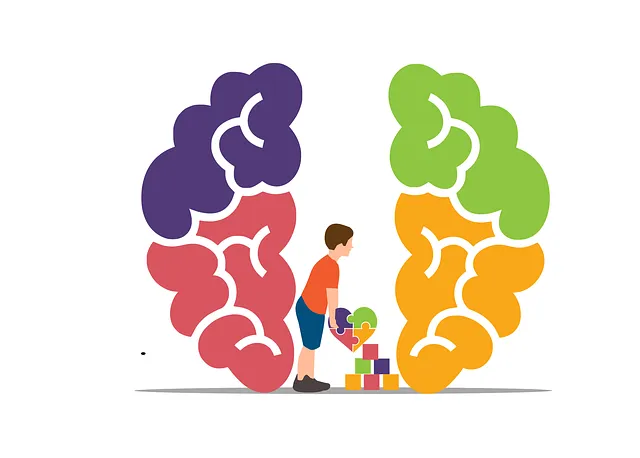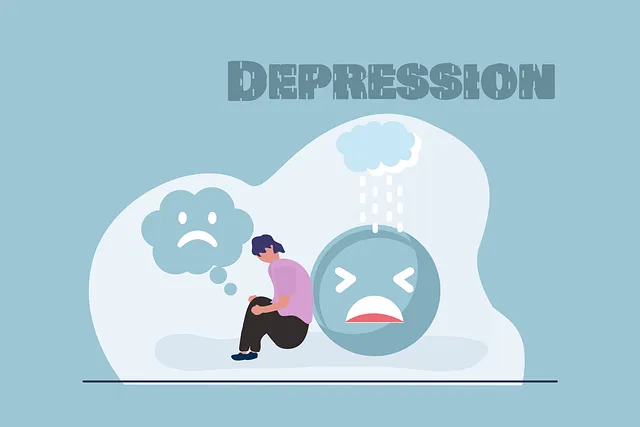Kaiser Permanente's mental health appointment centers in Golden, Colorado, play a key role in diverse community mental health awareness by collaborating with leaders and residents to tailor programs. They use culturally sensitive training, engaging content, technology, and partnerships for effective initiatives like stress management and stigma reduction, empowering individuals to prioritize mental well-being.
In today’s digital age, public awareness campaigns play a pivotal role in addressing mental health challenges. This article explores the development of effective strategies to improve community well-being, with a focus on Kaiser Permanente’s approach. We delve into understanding diverse community needs, designing engaging content for broad audiences, leveraging technology for outreach, and building partnerships with local organizations. By examining real-world examples, such as Kaiser Permanente’s mental health appointment center in Golden, we uncover best practices to measure campaign success and impact.
- Understanding Community Needs for Mental Health Campaigns
- Designing Engaging Content for Diverse Audiences
- Leveraging Technology in Public Mental Health Outreach
- Collaboration with Local Organizations: Building Partnerships
- Measuring Success and Evaluating Campaign Impact at Kaiser Permanente
Understanding Community Needs for Mental Health Campaigns

In developing public awareness campaigns for mental health, understanding the unique needs and challenges within specific communities is paramount. Kaiser Permanente’s mental health appointment centers, such as those located in diverse areas, play a crucial role in tailoring initiatives that resonate with local populations. By engaging with community leaders, healthcare providers, and residents, these centers can identify pressing mental health concerns and cultural barriers that hinder access to care. For instance, Golden, Colorado’s vibrant community might require campaigns focused on stress management and conflict resolution techniques tailored to the region’s demographics.
Addressing mental health disparities often involves enhancing cultural sensitivity in healthcare practices. This includes providing Healthcare Provider Cultural Competency Training to ensure professionals can deliver culturally responsive services. Incorporating Cultural Sensitivity in Mental Healthcare Practice allows for a deeper understanding of community dynamics, historical trauma, and ethnic-specific coping mechanisms, fostering more inclusive and effective public awareness campaigns that empower individuals to prioritize their mental well-being.
Designing Engaging Content for Diverse Audiences

In designing public awareness campaigns, engaging content that resonates with diverse audiences is key. The Kaiser Permanente mental health appointment center in Golden understands this vital aspect of successful outreach. By tailoring messages to cater to various demographics, backgrounds, and age groups, they ensure wider impact and comprehension. This involves using accessible language, incorporating relatable stories or scenarios, and offering practical insights into mental wellness—all essential elements for capturing attention and fostering meaningful connections.
For instance, a recent Mental Wellness Podcast Series Production initiated by the center targeted young adults with creative content featuring influential voices discussing self-care practices. Simultaneously, dedicated resources for older adults emphasized the importance of regular check-ins and early intervention strategies, demonstrating a nuanced approach to Risk Management Planning for Mental Health Professionals. Such strategic content development not only captures the attention of specific groups but also encourages proactive mental health management throughout the community.
Leveraging Technology in Public Mental Health Outreach

In today’s digital era, leveraging technology has become a powerful tool in public mental health outreach, especially with centers like Kaiser Permanente’s mental health appointment centers gaining prominence. Online platforms and mobile applications are increasingly being used to raise awareness about mental well-being, offering accessible resources for stress management, burnout prevention strategies for healthcare providers, and even virtual support groups. These digital initiatives complement traditional methods by reaching a broader audience, especially younger demographics, who often prefer online engagement.
The design of effective mental health education programs can benefit from these technological advancements. Stress management workshops organized through online platforms allow participants to learn valuable skills from the comfort of their homes, fostering a sense of community and accessibility. This approach not only encourages individuals to prioritize their mental health but also promotes a culture of open dialogue about issues that were once considered taboo. By combining traditional knowledge with modern technology, organizations like Kaiser Permanente can effectively contribute to improving overall mental well-being in communities across the nation.
Collaboration with Local Organizations: Building Partnerships

Collaboration with local organizations is a powerful strategy for developing effective public awareness campaigns, especially when focusing on sensitive topics like mental health. Partnering with entities such as Kaiser Permanente’s mental health appointment centers in diverse communities can significantly enhance campaign reach and impact. These partnerships bring together unique strengths: the expertise of healthcare professionals and the deep understanding of local community organizations.
By fostering these collaborations, initiatives can be tailored to address specific cultural sensitivities in mental healthcare practice, ensuring inclusive messaging. The integration of Healthcare Provider Cultural Competency Training within these campaigns boosts confidence among participants and fosters a sense of trust. This approach encourages open conversations about mental health while celebrating the diverse tapestry of communities, ultimately leading to more successful outcomes for public awareness endeavors.
Measuring Success and Evaluating Campaign Impact at Kaiser Permanente

At Kaiser Permanente’s mental health appointment center in Golden, evaluating the impact and success of public awareness campaigns is a multifaceted process. They employ a combination of quantitative and qualitative methods to gauge how effectively their initiatives reduce the stigma associated with mental illness. This includes tracking key performance indicators (KPIs) such as the number of appointments for mental health services, changes in community sentiment through surveys, and increased engagement on social media platforms dedicated to mental wellness.
By analyzing these metrics, Kaiser Permanente can identify which aspects of their public awareness campaigns are most impactful, specifically those focused on Mood Management. This data-driven approach allows them to adapt and refine their strategies, ensuring that Mental Illness Stigma Reduction Efforts remain relevant and effective in addressing the unique needs of the Golden community.
Public awareness campaigns play a pivotal role in fostering mental well-being within communities. By understanding diverse community needs, designing engaging content, leveraging technology, and collaborating with local organizations like Kaiser Permanente’s mental health appointment centers in Golden, these initiatives can significantly impact public health. Measuring success through evaluation ensures that strategies are effective and adaptable to different audiences, ultimately revolutionizing mental health outreach and enhancing overall community resilience.






